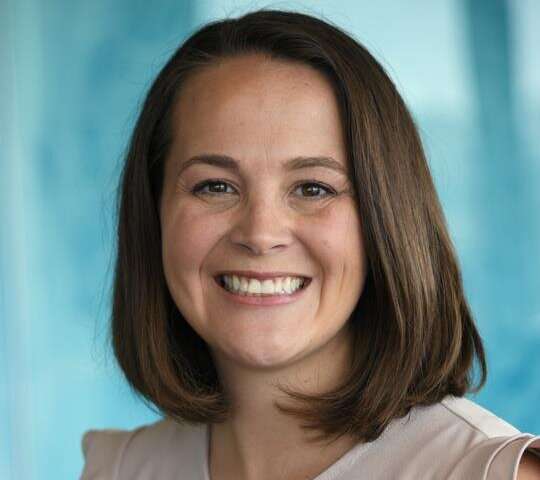
Historically, pediatric cancer patients have been much more likely than adult cancer patients to enroll in clinical trials as part of their treatment. Now a study by University of Colorado Cancer Center researchers working at Children’s Hospital Colorado shows pediatric oncology clinical trial enrollment may be down, from 40-70 percent seen in studies completed in the 1990s, to 20-25 percent in the early 2000s, to 19.9 percent in the current study.
“Childhood cancer is rare overall,” says the study’s first author, Kelly Faulk, MD, CU Cancer Center investigator and pediatric oncologist at Children’s Hospital Colorado, “so historically high enrollment rates to clinical trials has been integral to improving outcomes for our patients.”
The study used the Surveillance, Epidemiology, and End Results (SEER) database to estimate the overall number of pediatric cancer cases from 2004-2015, and then compared overall cancer numbers to the number of patients enrolled in clinical trials with the Children’s Oncology Group (COG), the largest pediatric oncology cooperative group.
“The potential reduction in enrollment isn’t all bad news,” says Faulk. “One reason trial enrollment may be decreasing is that good treatments have been developed for some of the most common childhood cancers, thereby shifting the focus and resources toward opening trials for higher risk, but often more rare cancers.”
Additionally, pediatric cancers tend to have fewer mutations than adult cancers, offering fewer genetic targets for the kinds of new drugs being tested in many clinical trials. And, Faulk points out, historically low funding for pediatric cancer research limits the ability to open new trials.
Unlike many studies of adult trial enrollment, the current study found no significant racial, ethnic, or socioeconomic disparities within pediatric trial enrollment. Faulk says this highlights the accessibility of COG trials to U.S. patients and also points out that children may be more likely than adult patients to be covered by public insurance options like Medicaid.
However, the study does reveal a group of cancer patients that has historically and continues to under-enroll in clinical trials, namely adolescent and young adult (AYA) patients from ages 15 to twenty-nine.
“They can feel lost between pediatric and adult cancer care, and unfortunately these AYA patients represent a population that has failed to see the same improvements in outcomes that their younger counterparts have,” Faulk says. “Given their age and other socioeconomic factors, they may not see doctors as often and commonly suffer from suboptimal health insurance coverage.”
To respond to this need, COG trials have increased age eligibility limits on many trials to include patients in this AYA population. Likewise, Faulk would continue to encourage adult cooperative groups to lower their age restrictions to provide more overlap with the upper range of pediatric trials.
Source: Read Full Article
